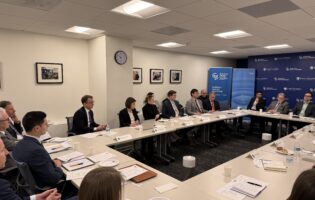
Ted Eytan via Flickr
Regional Inequality and Populist Voting in Germany and the United States
Although having lost the U.S. presidential election, the number of votes won by populist president Donald J. Trump still exceeded many expectations. In a similar manner, the populist German party Alternative für Deutschland (AfD) experiences continuing support amongst voters. Experts on both sides of the Atlantic have vividly debated the reasons for this continuing wave of populist voting. United in their populist rhetoric, the AfD and Mr. Trump claim to speak for “the people” and against “the corrupt elite.” However, populist voting is not distributed evenly throughout both countries. Rather, especially high populist support is clustered in certain regions.
The webinar addresses this regional variance in populist support in Germany and the United States through globalization-induced regional inequality and the regional provision of public services. The presentation will give policy recommendations on how regional inequality and ultimately populist voting could be mitigated.

Michael Bayerlein is DAAD/AGI Research Fellow in fall 2020. He is a doctoral researcher at the University of Kiel and a research associate at the Kiel Institute for the World Economy. Mr. Bayerlein holds a Master’s degree in Political Science and Public Internal Law from the University of Kiel as well as a Bachelor’s degree in Political Science from the University of Mannheim. His research interests are located at the intersection of political science and economics with a special focus on political economy, party politics, electoral behavior, globalization, and populism, with a strong focus on quantitative methods.
This webinar will convene via Zoom. Please contact Elizabeth Caruth at ecaruth@aicgs.org with any questions.







